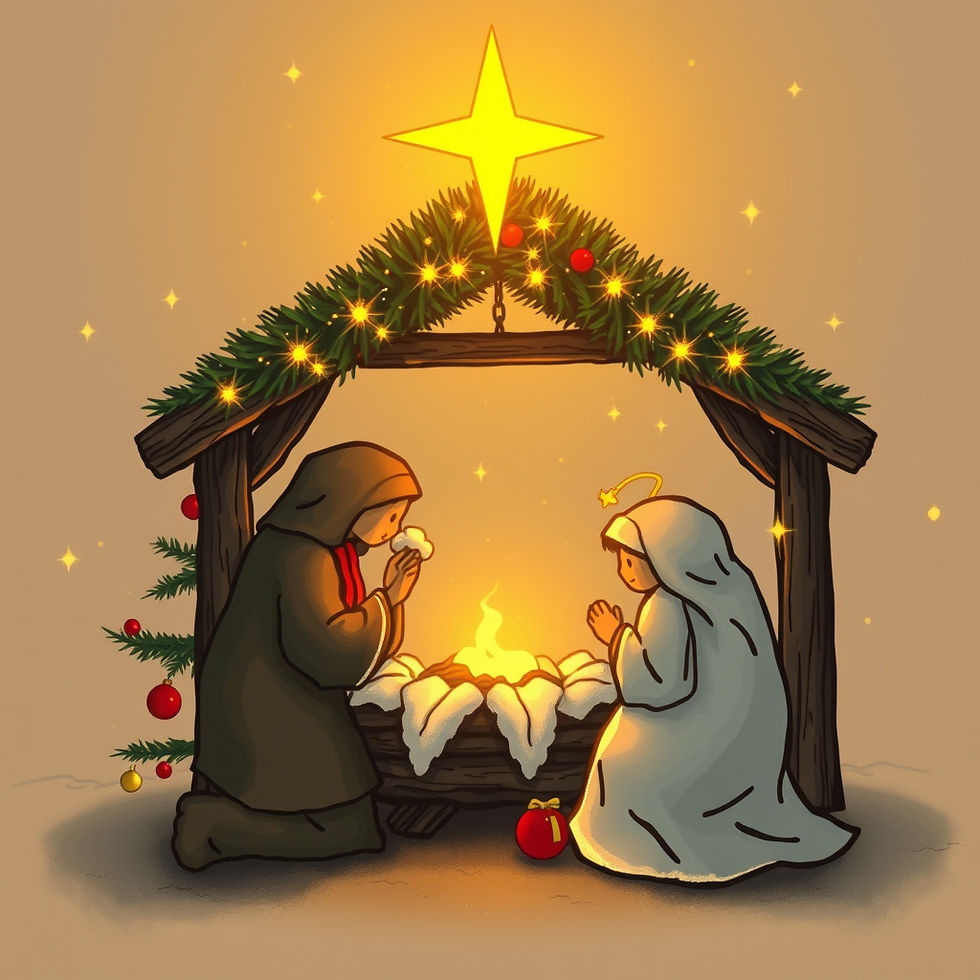Christmas – The Gift of Life
- Eldon Peterson
- Dec 19, 2023
- 3 min read

With Christmas this weekend it is good to stop and reflect on the reason for our celebration. Certainly it is to remember Christ’s birth, but have we considered why this should be important to us? I think its importance can be stated in a single word: life.
Jesus, the child whose birth we remember at Christmas, was born to bring us life. Some say that he came to teach us how to live, others say he came to do miracles and heal the sick, and still others say that he came to be our example. But while Jesus did all of these and more, these are merely secularized explanations that mask the real reason that the child was born – He was born to give us life.
While it may seem odd to say that the child was born to give us life, there is no better way to express the wonder of Jesus’ birth. Any other reason not only misses the importance of his birth but it also expresses a misunderstanding of the Christian gospel. Jesus was born to be our savior, to give sinners new, eternal life. This is not merely a different way of saying the same old thing, it is something greater by the nth degree.
The meaning of Christmas came to my mind as I was travelling for my niece’s memorial service. As I watched the sun rise on the horizon under the early morning sky I meditated on the fact that while death is part of life, this knowledge does not remove it’s sting nor make the loss any less painful. And yet, understanding the meaning of Christmas can bring us hope especially in the face of death.
Of course, hope isn’t found in death, but in the one who overcame death and promises new life to those who believe. From Genesis to Revelation the Bible tells us about the problem and the solution. First, the problem is sin and death (the order is important). Genesis tells us of how sin brought death into the world. Then, the gospel tells us how Jesus was born a man so that he could offer his life as an atoning sacrifice for our sins to give us eternal life.
Many New Testament verses testify about the new life that is ours in Christ, but possibly Romans 6:23 best captures the tension between sin and death and life, “For the wages of sin is death, but the free gift of God is eternal life through Christ Jesus our Lord.”
How this was done, and how it had to be done, is best explained in the book of Hebrews. First, we’re told how the one who would redeem us needed to be like us in every way, “Therefore, it was necessary for him to be made in every respect like us, his brothers and sisters, so that he could be our merciful and faithful High Priest before God. Then he could offer a sacrifice that would take away the sins of the people. Since he himself has gone through suffering and testing, he is able to help us when we are being tested.” (Hebrews 2:17-19)
Next, we find that Jesus’ virgin birth is not just part of the Christmas story, it’s central to our celebration. To save us from our sins, Jesus had to be born free of the sin we’ve inherited from Adam; being without sin, Jesus could offer himself as a sacrifice for our sins, “So then, since we have a great High Priest who has entered heaven, Jesus the Son of God, let us hold firmly to what we believe. This High Priest of ours understands our weaknesses, for he faced all of the same testings we do, yet he did not sin. So let us come boldly to the throne of our gracious God. There we will receive his mercy, and we will find grace to help us when we need it most.” (Hebrews 4:14–16)
The incarnation enabled the child in the manger to become our savior. At Christmas we remember Jesus was born to be our High Priest and to offer himself for our sins as John testifies, “If we walk in the light as he himself is in the light, we have fellowship with one another, and the blood of Jesus his Son cleanses us from all sin.” (1 John 1:7)
This year, as you consider the meaning of Christmas, I pray that you will remember the child in the manger who was born to be your savior and give you new life.




Comments